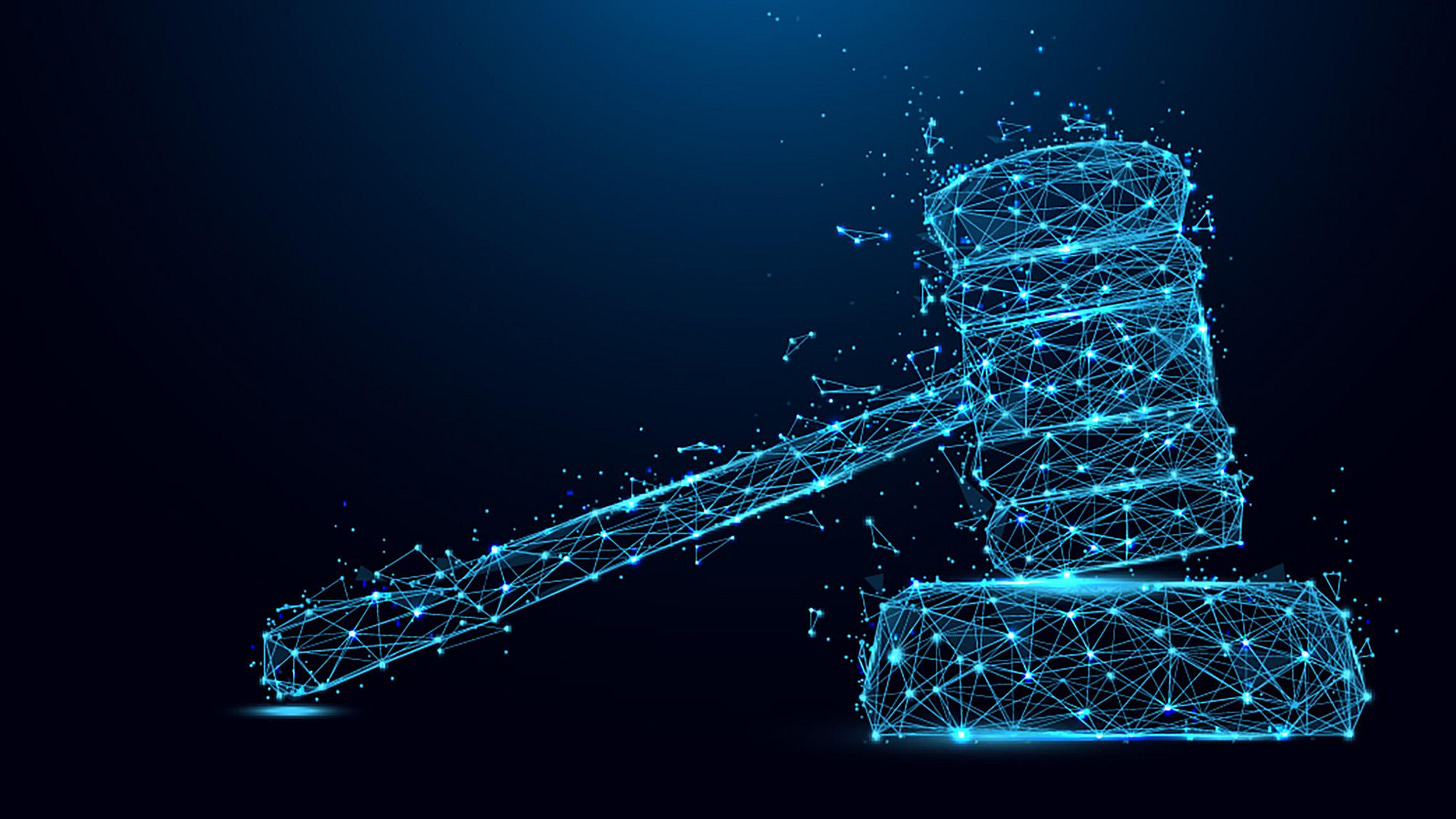Exploring the Ethereum Supreme Court: A Paradigm Shift in Blockchain Governance
Rethinking the Notion of "Code Is Law" and Embracing Human Judgment
The blockchain world has long been guided by the mantra "code is law." This belief has underpinned the decentralized nature of blockchain systems, where smart contracts and protocols execute automatically, free from human intervention. However, a novel concept is now challenging this fundamental principle—the Ethereum Supreme Court.
In this series, we embark on a journey to unravel this groundbreaking idea, which asserts that, in certain exceptional circumstances, human judgment may be essential for delivering justice in the blockchain realm.
Rethinking "Code Is Law" – A Radical Idea Emerges:
At the forefront of this innovative proposal is Alex Gluchowski, the CEO of Matter Labs. He dares to question whether "code is law" should be an immutable doctrine. Gluchowski introduces the idea of hierarchical on-chain courts, designed to manage and arbitrate disputes.
This concept disrupts the conventional thinking in the blockchain space, challenging the belief that code alone can administer justice. It invites us to contemplate the philosophical implications of this shift.
Hierarchical On-Chain Courts for Blockchain Disputes:
Gluchowski's vision revolves around a structured network of on-chain courts, serving as impartial arbitrators for escalating disputes. These courts offer an alternative to rigid, hard-coded rules. However, understanding how they operate and determining when they should intervene raises intriguing questions.
Exploring the practicalities of implementing such a system is essential to grasp its potential impact on blockchain governance.
The Rare and Philosophical Nature of Chain Forks:
Blockchain forks, while rare, carry profound philosophical implications. We delve into the intricacies of blockchain forking, exploring how it affects community trust and the overall value of a blockchain. This discussion illuminates the importance of consensus in blockchain networks and how forks can disrupt established norms.
Gluchowski's proposal aims to formalize Ethereum's "social consensus layer" to safeguard decentralized finance (DeFi) applications and layer-2 networks. We discover how this system could enhance security, particularly in the face of catastrophic events such as hacks.
This concept prompts us to consider the potential benefits and challenges of embedding social consensus into blockchain protocols.
When to Invoke the Ethereum Supreme Court:
The Ethereum Supreme Court would not be invoked lightly. Gluchowski envisions it being reserved for "truly extraordinary cases." We explore the criteria that would justify Supreme Court intervention in blockchain matters.
Understanding the thresholds for intervention is crucial to evaluate the practicality and effectiveness of this proposal.
Within the Ethereum community, Gluchowski's proposal has not been universally embraced. There is skepticism surrounding this concept, including concerns voiced by Ethereum co-founder Vitalik Buterin.
This analysis offers insights into the potential resistance and challenges that any radical shift in blockchain governance might encounter.
A Challenge to the Status Quo in Blockchain Security
Gluchowski's proposal challenges the status quo, emphasizing the growing significance of security within Ethereum's ecosystem. We delve into how this concept could enhance protection against bugs and hacks, which are ever-present risks. Understanding the evolving landscape of blockchain security is vital to appreciate the necessity for innovative solutions.
A key aspect of this proposal is using the Supreme Court as a deterrent against external interference. We explore how this mechanism could fortify Ethereum's position as a network state.
Evaluating the potential impact of such a deterrent on blockchain security and governance is essential for a comprehensive understanding of the proposal.
Blockchain Governance in Flux - A Time for Innovation:
Gluchowski's vision has ignited fervent debate within the Ethereum community. We analyze the ongoing discussion surrounding the delicate balance between decentralization and intervention in blockchain governance. Exploring the viewpoints and arguments within the community provides insights into the diversity of perspectives on this paradigm shift.
This proposal underscores the evolving nature of blockchain governance and highlights the need for innovative solutions as Ethereum continues to expand. It prompts us to reflect on the adaptability of blockchain networks and the necessity for governance structures that can evolve with the technology.
Exploring the Boundaries of Code-Driven Governance:
As we delve deeper into Gluchowski's idea, we contemplate the boundaries of code-driven governance and the evolving role of human judgment in blockchain ecosystems. This exploration encourages us to consider the ethical, legal, and practical aspects of blockchain governance, challenging traditional notions.
We value your perspective! What are your thoughts on the Ethereum Supreme Court proposal? Do you consider it a necessary evolution in blockchain governance or a potentially risky departure from the "code is law" principle? Share your insights and be part of the ongoing discourse about the future of blockchain governance. Your voice matters in shaping the future of this transformative technology.




